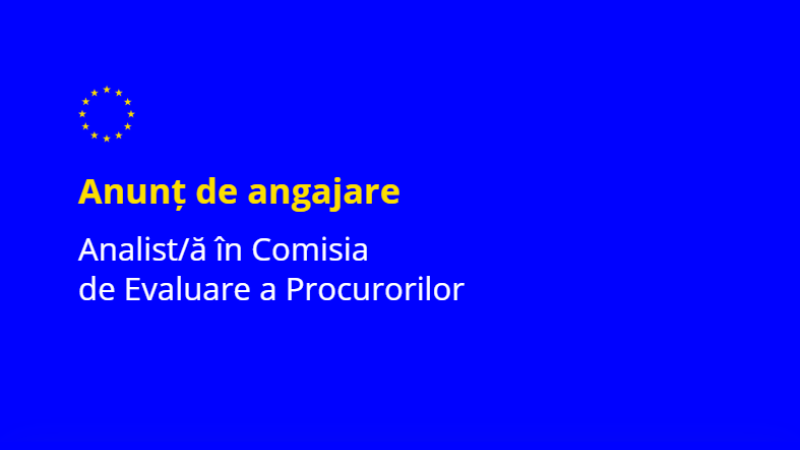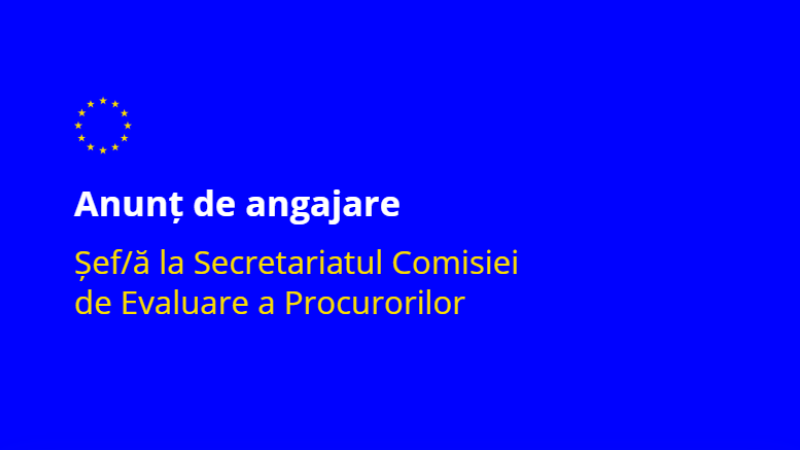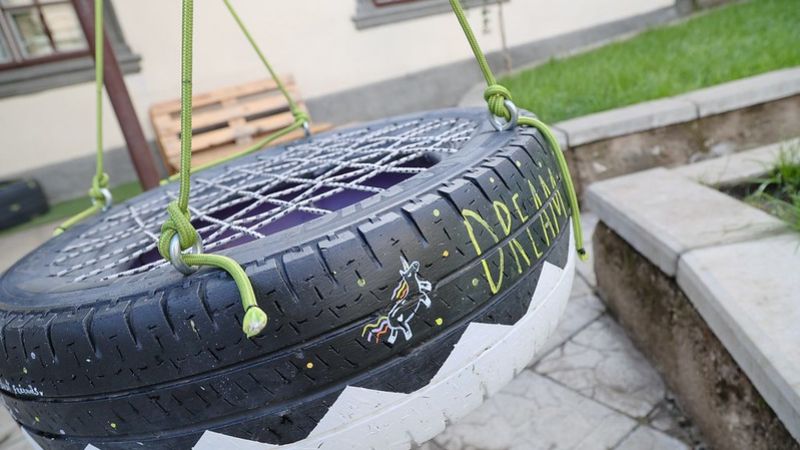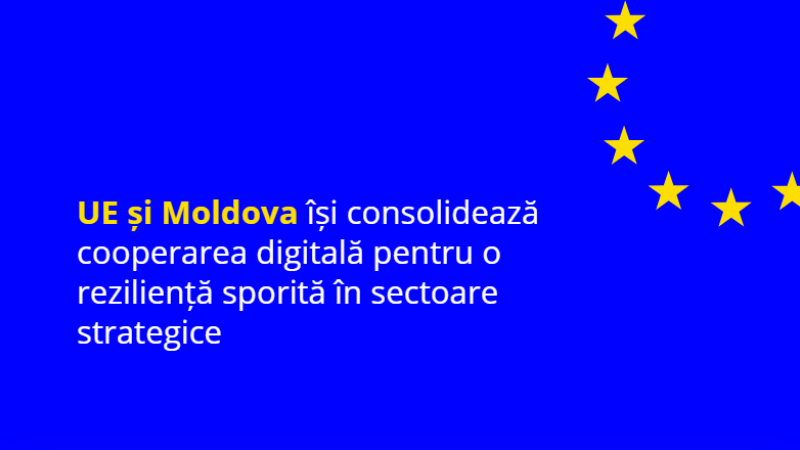#Justice4Moldova Survey: 95% of Moldovan citizens who support EU accession consider that justice reform is crucial for Moldova’s European integration
The Institute for European Policies and Reforms (IPRE), in cooperation with Magenta Consulting, presented on Tuesday, 6 February 6, 2024, the results of the first national public opinion survey on integrity in the justice sector – #Justice4Moldova.
The primary purpose of the study is to determine the main challenges, expectations and priorities in the implementation of justice and anticorruption sector reforms, as well as perceptions regarding the actors in the respective sectors.
According to the survey results, about every third respondent (30%) believes that the situation in the justice system has improved in the last 3 years, while about a quarter (25%) – that the situation has worsened. The top three problems of the justice system in Moldova that were spontaneously named by the interviewees are: corruption/bribery (53%), „nepotism” (12%) and incompetence of specialists in the system (9%).
In terms of trust in some institutions of the rule of law system, respondents answered that they trust lawyers more often (35% have some or very much trust); 30% say they have a lot of trust in the police, while 22% in the judiciary and prosecution systems. The ranking of opinions about certain actors in the justice system is rather similar on the level of trust – most participants have a positive opinion of lawyers (72%), civil servants (71%), police (71%), while the level of confidence in judges and prosecutors is 58% each.
According to the analysis of the survey, it appears that gender, age or belonging to an ethnic group would not influence the level of trust in judges and prosecutors for at least a third of respondents. At the same time, about one in three persons (35%) say they would trust a young judge/prosecutor more, and about one in four (26%) trust a woman judge/prosecutor more. However, the interviewees were divided when it comes to the independence of judges and prosecutors. Thus, 42% of respondents say that judges and prosecutors are generally independent, while about half consider that judges (53%) and prosecutors (51%) are not independent.
The survey respondents evaluated the activity of Moldovan courts in terms of some characteristics. Thus, to a greater extent, respondents agreed that courts have competent/professional specialists (71%), and 63% believed that the courts are accessible to everyone. However, respondents believe that courts are not efficient enough (61%) and not transparent (60%). At the same time, just over half (56-57%) of respondents consider the current salaries of prosecutors and judges to be appropriate, and about a third (32-34%) perceive them as too high. Most often, respondents mention that, between 2021 and 2023, they interacted with the following 3 categories of legal professions: notaries (46%), police (38%) and lawyers (21%). At the same time, 17% interacted with courts and 11% with prosecutors.
On the level of corruption, every second respondent assesses corruption as being present in the judiciary (48%), prosecutorial system (47%) and police (46%), and 38% consider corruption to be widespread among lawyers.
The survey data also shows that most respondents have heard about the justice and anticorruption sector reforms in Moldova (70%) and the strategy for ensuring the independence and integrity of the justice sector in Moldova (62%), but know to a lesser extent about them. 40% of respondents consider themselves informed about the justice and anticorruption sector reform in Moldova, and the majority (59%) said they are little/not informed about this topic. Respondents chose the top 3 sources of information about justice reform and anticorruption, which are TV (57%), social networks (48%) and news sites (35%).
Regarding the level of trust in the results of vetting judges and prosecutors, citizens’ opinions are divided. On the one hand, 40% say they are confident in the results of the evaluation, where 13% have a lot and 27% rather a lot of trust. On the other hand, 42% say they have little confidence, and 15% of respondents say they do not trust its results at all. However, respondents who are better informed about justice reform trust the vetting more than those who are not.
The majority (75%) believe that the establishment of an Anticorruption Court and a new system of anticorruption courts are important for Moldova. Also, most respondents support Moldova’s accession to the European Union (68%), and most of them (95%) believe that justice reform is crucial for Moldova’s European integration.
The data presented in this study was collected between November 24 and December 22, 2023, using the quantitative CATI (Computer-Assisted Telephone Interview) method. The survey was conducted with a national probabilistic proportional sample of 1143 respondents from the general population, women and men aged 18+. The poll’s margin of error is +-2.9%
More details about the survey data can be found here.
The survey was conducted by Magenta Consulting for the Institute for European Policies and Reforms (IPRE), within the project „Ensuring the integrity, efficiency and independence of the justice system in Moldova – #Justice4Moldova”, funded by the European Union and co-financed by Soros Foundation Moldova. The content of the study belongs to the authors and does not necessarily reflect the point of view of the European Union and Soros Foundation Moldova.








